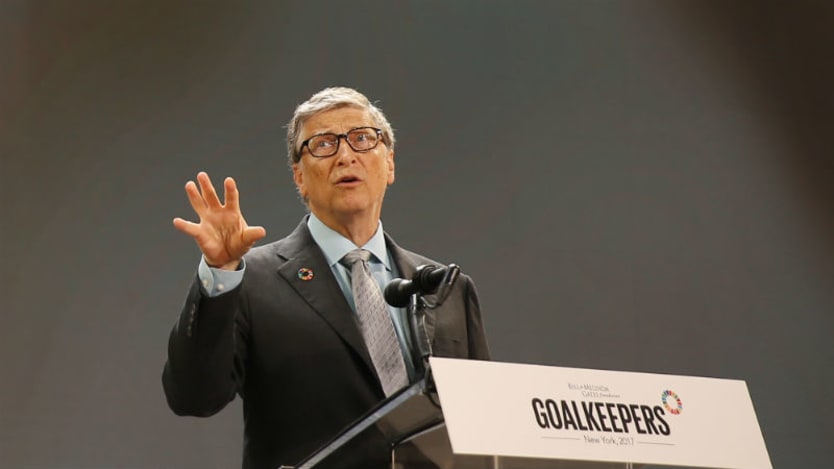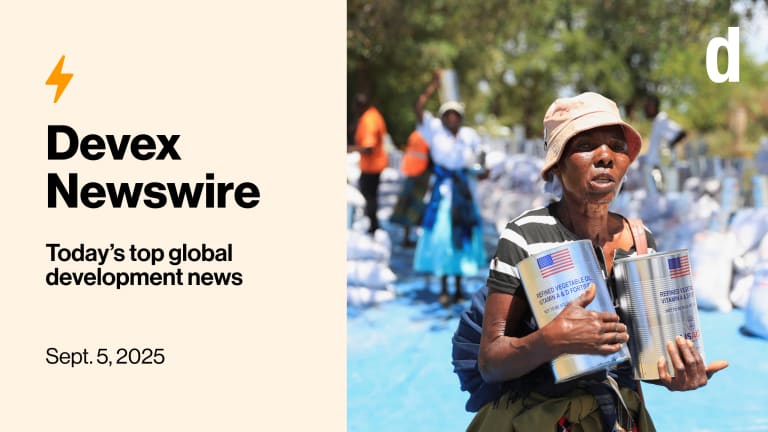
SAN FRANCISCO — National poverty measures can mask the vast inequalities that exist within countries.
For example, South Africa, which is categorized as a low poverty country by many widely accepted measures, is the world’s most unequal country.
Subnational data reveals gaps in opportunity between districts and poverty is persistent in the areas that development investments do not reach.
More news from the Gates Foundation:
► Gates Foundation discusses gender investment at Seeds of Change
► Q&A: The Gates Foundation's new education strategy
► Gates Foundation CEO on the importance of innovation, but also prioritization
On Tuesday, the Bill & Melinda Gates Foundation launched its third annual Goalkeepers report as part of its commitment to track progress on the Sustainable Development Goals every year through 2030. “Examining Inequality 2019” features new data on global inequality at the district level, and serves as a call to action for three areas to target the poorest: primary health care, digital governance, and climate adaptation.
Bill and Melinda Gates, co-chairs of the Gates Foundation and co-authors of the report, urge the development community to double down in areas that have have been left behind.
“The lives of the lucky and unlucky aren’t converging fast enough,” they write in the introduction of the report. “We believe the development community needs to start doing business differently.”
The report highlights success stories from governments that have designed human capital investments to reach districts that need to make up the most ground. For example, bank accounts, identification, and mobile phones allowed the Indian government to verify the identity of recipients of cooking gas subsidies. Over time, the program went from benefiting everyone — especially the wealthy — to benefiting poor rural women. The exemplars the Gates Foundation chose to include in the report respond in part to questions it receives from partner countries, Sue Desmond-Hellmann, CEO of the Gates Foundation, told Devex.
“‘Okay, you've convinced us the SDGs are important, you convinced us that geography is unfair and that gender matters, so I'm the prime minister of a poor country, what can I do?” she said.
Working on the state level
In Nigeria, there is a huge disparity between rich and poor. The Gates Foundation approaches its work there not only on a national level but also through memorandums of understanding with governors, focusing on states with the highest levels of inequality.
For example, Bill Gates has regular phone calls with six of the governors in the north of Nigeria to discuss progress on their primary health care system.
On a conference call with reporters last week, Devex asked Gates what actions the global development community should take to address inequality on the subnational level.
“A lot of the challenges here are quality of governance,” he said, referring to one area where the Gates Foundation is increasingly funding work.
The pervasiveness of the cell phone should give the global development community more visibility into government services than it has ever had before, Gates explained. He acknowledged how his background founding Microsoft is part of the reason for his belief that digital tools can help drive progress on the SDGs. Gates said a key question is how this technology can allow people to track government spending and give feedback when services are not working as they should.
"Highlighting development successes at district levels is especially valuable for countries seeking to graduate from least-developed country status,” Gates added.
But one of the problems that arise when aid is redirected away from these countries is the invisible poor, who are left behind, warned Rohini Pande, professor of economics and director of the Economic Growth Center.
“Funders are increasingly interested in understanding the clustering of poverty within countries,” she told Devex.
There’s a need for more research and analysis at the district level to understand why this inequality is taking place and direct resources at those areas that have been excluded, Pande explained.
Global development practitioners need to go beyond “talking about poverty as an abstract concept” and “start talking about where poor people are” in order to “see which regions and communities and households they are in,” she said.
Showing up differently
The Gates Foundation partners with the Institute for Health Metrics and Evaluation, a global health research center at the University of Washington, to produce its annual Goalkeepers report.
For the countries included in the report, this is the first comprehensive estimation of child mortality and educational attainment down to the district level, said Steve Lim, senior director of science and engineering at IHME.
He said he hopes the data leads people to look for lessons from those areas that are more successful than others.
The Gates Foundation hopes that this data will inform renewed action to tackle the inequality that persists between districts, but the global development community will also have to change its approach.
Doing business differently means showing up differently, Desmond-Hellmann told Devex. When a government makes its priorities known, funders and implementers have to think about how they can help support the government to drive the agenda.
When the government of Ethiopia put in place its plans for health systems transformation, for example, leaders in government told the Gates Foundation and other partners: “Here’s our ambition … If your agenda doesn’t fit within that, we’re not going to do business with you,” she said.








